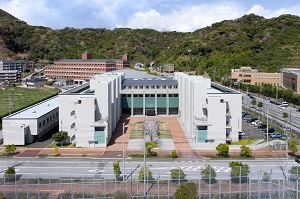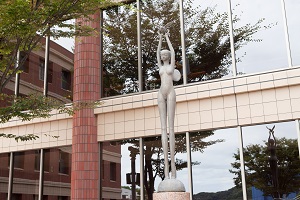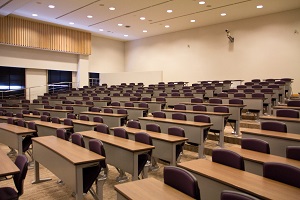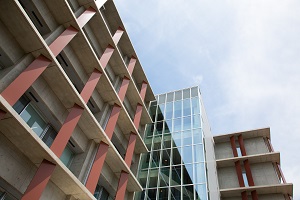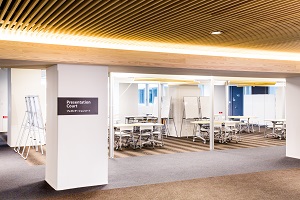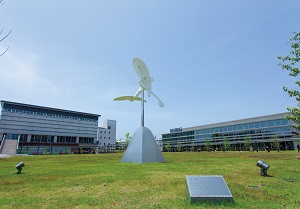本文
Faculty of Nursing Policy
Type of Student We Are Looking For
- People who are able to take the initiative to learn and act proactively toward a goal
- People who have a well-rounded character and respect for others, and who strive to learn together
- People who aim to utilize what they learn at the University of Kochi and contribute to the local and international communities
Admission Policy
The Faculty of Nursing helps students to develop a well-rounded character and a stance for working on societal issues, and develops richly creative and well-rounded individuals who are able to pioneer nursing into the future, work with people to solve health problems, and contribute to the formation of healthy lifestyles on a foundation of the nursing philosophy, as well as specialized knowledge, technology, and humanism.
Accordingly, the Faculty of Nursing seeks the following types of students.
- People who have basic academic abilities in a broad range of the humanities and natural sciences (Knowledge/Cultivation)
- People who are able to understand people, life, and society deeply (Thinking ability/Ability to make judgements)
- People who have the ability to think about things logically (Thought/Judgment)
- People who have the ability to continue learning throughout their lives (Interest/Motivation)
- People who have the ability to identify issues, formulate plans, and implement them proactively on their own (Independence)
- People who are able to respect others and work together to achieve things(Execution/Cooperation)
Curriculum Policy
In order for the students to achieve the Diploma Policy, the Faculty of Nursing has established General Education courses and Departmental courses.
1. General Education courses
(1) In order for the students to acquire what is needed to function within a society that is fair to all, we have sets of courses through which students learn communication skills (i.e. Literacy courses), foundational knowledge of various areas of study (i.e. Foundational courses) and issues concerning local communities as well as international society (i.e. Theme-based Education courses), knowledge and skills for maintenance and promotion of lifelong health (i.e. Health and Sports courses), and practical initiatives to deal with regional issues centering around local communities (i.e. University-Community Partnership courses).
(2) English Communication courses are mandatory in years 1 and 2. Among the University-Community Partnership courses, the foundational courses are mandatory; the applied courses are elective. Other courses are chosen based on one’s own interests.
(3) Classes are, as much as possible, kept to small numbers, and methods of Active Learning are employed. Classes are conducted in diverse styles based on the content and special characteristics of each individual course. Meticulous evaluation of study is also carried out.
(4) Through the General Education courses, the students acquire a comprehensive understanding of humans, i.e. the targets of nursing, and they develop abilities to grasp the society in which they live and the issues they face from a global perspective, and to develop affluent humanity and sensitivity.
2. Departmental courses
The Departmental courses are composed of Expertise Foundation courses, Nursing Foundation courses, Clinical Nursing courses, and Comprehensive courses for the students to acquire the necessary specialized knowledge, skills, scientific thinking, problem-solving skills, and international/ interdisciplinary skills, so that they will have a full exercise of their nursing expertise.
(Curriculum structure and educational content)
(1) The Expertise Foundation courses provide the students with specialized knowledge regarding the origins and treatment of humans’ health and illness, and the knowledge to understand people’s health within the continuity of individual, family, and community.
(2) The Nursing Foundation courses are for the students to learn the concept and fundamental knowledge of nursing science, and aim for the students to acquire an understanding of the targets of nursing, ways of viewing and thinking as nursing professionals, and skills in nursing.
(3) The Clinical Nursing courses help the students understand people's diverse ways of living and value systems, with respect and care for the sanctity and rights of human beings by employing scientific thinking and problem-solving skills to come to grips with health problems, to develop skills in advancing nursing towards improving people's healthy lives, the basis of the comprehensive understanding of humans, which lies in the learning though Common Departmental courses, Specialized Departmental courses, and Nursing Foundation courses.
(4) The Comprehensive courses are for the students to cultivate their identity as nursing professionals, to predict health issues in communities, to gain an independent and proactive attitude towards learning, to develop foundational skills in exploring essential aspects of nursing from a research-oriented standpoint in international interdisciplinary perspective.
(Sequence for course registration)
(1) From the early stage that follows their enrollments, the students take Nursing Foundation courses to develop their interest in nursing science and acquire specialized knowledge and skills; they take Expertise Foundation courses to gain knowledge fundamental to the understanding of humans, the targets of nursing. The structure allows for gradual progression throughout the school years from the basic to the application stage and helps the students deepen their specialized knowledge and skills.
(2) With Nursing Foundation courses and Expertise Foundation courses as the basis, our curriculum structure integrates Clinical Nursing courses, through which the students acquire knowledge and skills relating to nursing in each specialized area, and Clinical Internship courses, in which the students put their knowledge into practice so that they can develop nursing for a variety of targets such as individuals and groups as well as for humans’ developmental stage and health level.
(3) To assure that the students will make systematic and practical use of the knowledge and skills they have acquired in classroom environments, we require them to meet prerequisites for Clinical Internships.
(4) Comprehensive courses are taken over the four years to help the students as nursing professionals, to develop their positive attitude towards learning independently and ethical viewpoints. Comprehensive Nursing Practica and Nursing Research are set in year 4, so that the students will be able to integrate the knowledge and skills that they have learned through the Nursing Foundation courses, Expertise Foundation courses, and Clinical Nursing courses, and they will be able to acquire deeper expertise and skills in exploring what nursing is.
(Methods of instruction)
(1) In order for the students to be able to focus on their future and acquire the skills conforming to the Diploma Policy of this department, we provide them with the Department of Nursing Curriculum Structure Chart, the Department of Nursing Course Registration Model (General Education courses), the Department of Nursing Course Registration Model (Hospital) Nurse), the Department of Nursing Course Registration Model (Public Health Nurse), the Department of Nursing Course Registration Model (Midwife), the Department of Nursing Course Registration Model (School Nurse), and instructions on how to register for courses.
(2) In order for the students to be able to acquire skills conforming to the Diploma Policy of this department, we use a variety of methods of instruction. By employing pre-assignments, post-assignments, group work, group discussions, and active learning methods, we assist them to develop their abilities to learn independently. In order for the students to improve their abilities to integrate their knowledge and skills to put them in practical use for analysis, decision-making, and consider and exercise appropriate care, classes are conducted in small numbers and in a simulation format. In order to develop their abilities to produce scientific logical thinking and new knowledge in nursing science, the students engaged in their nursing research activities in groups. We also strive to provide educational environments for helping them independently advance their learning.
(Evaluation)
For each lecture, seminar, and practicum, completion criteria and grade assessments are employed in accordance with the Diploma Policy. The methods/criteria of class completion and grade assessment are made accessible to the students by means of syllabi and lists of requirements on practica. Evaluations for graduation are made following the Diploma Policy. We also strive to guarantee quality education by evaluating and improving the curriculum in light of the students’ evaluation results.
Diploma Policy
The Faculty of Nursing awards bachelor's degrees to the students who have gained abundant humanity and attitude to engage in social issues and the development of nursing for the future on the basis of nursing philosophy, expert knowledge and technology, and humanism, who seek to solve health problems collaboratively, who aim to acquire a rich humanity and creativity that can contribute to the creation of people's healthy lives, and who have acquired the following abilities.
(Knowledge and understanding)
1. The student has the skills to put nursing into practice in various areas of study such as public health, medical care, welfare, etc. on the basis of specialized knowledge, skills, scientific logicality and logical decisions.
(Ubiquitous and practical skills)
2. The student understands the diverse ways in which humans live their lives and their value systems, respects sanctity and rights, and is able to build relationships with others through good communication.
3. The student is able to predict health issues in communities and is able to exercise leadership in solving health issues by working together with professionals from multiple disciplines.
(Attitude and orientation)
4. The student has cultivated his/her identity as a nursing specialist and has the skills to continue improving their expertise throughout his/her life.
(Comprehensive learning experience and ability to think creatively)
5. The student has the fundamental ability to conduct research that leads to improving the quality of nursing.
6. The student has the skills to understand nursing studies from an international and interdisciplinary standpoint.
7. The student has the fundamental skills to make use of his/her nursing specialty to improve the health of local people and create a safe and secure society.

